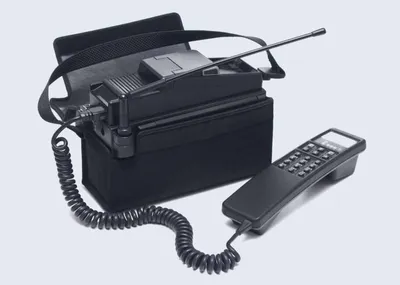What Does The 2G/3G Switch-Off Mean For Me?
The government confirmed in December 2021 that 2G and 3G mobile networks in the UK will be phased out by 2033.

Both frequencies are ageing, and with the increase in 4G and 5G infrastructure across the UK, plans to switch off 2G and 3G networks have been put in motion.
Discussions have been underway for some time, with networks such as O2 already beginning the switch-off process for 2G and 3G services in mainland Europe. The decision has been made after consultation with the UK’s major mobile network providers (EE, O2, Vodafone, and Three UK), with plans centring on freeing up the spectrum for 5G connectivity.
Why are 2G and 3G being switched off?
While both 2G and 3G frequencies were important innovations when they were first introduced, further technological advances meant that they’re not in wide usage any longer.
The government has also stated that the move will increase the security of the UK’s telecoms supply chain, meaning that the internet data space we operate in will become more secure due to the freeing up of space.
There are specific targets the government and the major networks want to meet, and with technological advancements being achieved at a rapid pace, there’s pressure to increase access for users in the UK.
In fact, with the internet becoming increasingly vital in our lives with online banking, communication, working, and information all being exchanged, used, and hosted online, there’s a necessity to ensure people have good quality access to high-speed internet at all times.
Given that many frequencies can become overloaded with dense populations, a lot of thought and planning has gone into the phasing out of 2G and 3G technologies.

What Does It Mean For The Future Of Mobile Phone Use?
The future of mobile device usage is hard to predict, especially when you consider the differences between the latest smartphones and the first mobile phones on the market in the 1990s.
While mobile phones were initially invented to communicate through text messages and phone calls, there are now very few things you can’t do on a mobile phone that you can do on a computer.
So, the announcement of a £50 million telecoms research funding package to utilise 5G technology to facilitate advancements in business and at home has been widely welcomed.
It’s worth noting that the switchover requires collaboration between countries around the world, with companies operating internationally.
Mobile phone use in rural areas is set for an upgrade, too.
That’s because any areas with poor or no access to 4G and 5G technology are being upgraded as part of the UK’s Shared Rural Network project, which is a £1 billion initiative set up between the government and the mobile network industry.
3G usage has been in decline for several years, and 2G coverage is rarely used, but it may mean that some people in rural areas will need to upgrade to smartphones.
It does mean that some older phones might not be able to function if they’re unable to access 4G and 5G signal, and could mean that some technology such as security cameras may need to be upgraded too.
The good news is the rural network coverage upgrade will be completed BEFORE the transition period to switch off 2G and 3G signal begins.
What If I Need To Boost Mobile Signal?
If you’ve tried EVERYTHING and the signal’s still not reaching your phone at home, at the office, wherever you are, then…
It’s time to consider mobile signal boosters.
At Signal Solutions Ltd, we use Nextivity CEL-FI technology to solve your mobile signal problems once and for all.
We’ll install a receiver at your home and pop a booster somewhere where mobile signal is strong and reliable, so you can enjoy a great mobile connection 24/7.
Our solutions are:
- 100% legal to use, fully compliant with Ofcom licensing laws
- Inexpensive and well worth the small investment
- Unconditionally network safe
- Accepted by all UK regulators
- Consistent in providing high-quality signal in areas and buildings where coverage is poor or non-existent
- Compatible with every mobile network
If you want to improve the mobile signal in your home, office, or commercial building, then let’s have a chat.
Give us a call on 020 3823 7365!